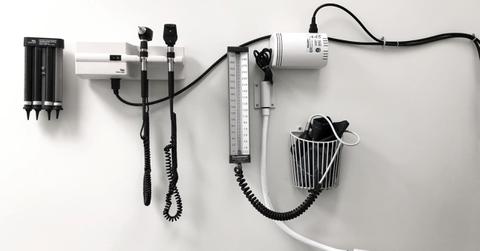HSA Accounts Help Combat Inflation Due to Tax Benefits
A health savings account (HSA) could help you combat inflation thanks to its tax benefits. Here's what we know about an HSA account as a hedge against inflation.
Aug. 10 2022, Published 12:30 p.m. ET
A health savings account (HSA) is a type of healthcare plan that allows you to fund an account with a certain amount of money per year to use for a wide range of healthcare-related expenses. With July consumer price index (CPI) data showing inflation cooling, but still high, it may be worth considering an HSA as an inflation hedge.
An HSA could help you combat inflation thanks to its range of tax benefits. Here’s how it could work in your favor.
There are HSA tax advantages and investment opportunities.
Having an HSA healthcare plan provides a range of tax and investment benefits, including:
HSA premiums and contributions (up to $3,200 for individual plans and $7,200 for individuals on a family plan) are tax deductible. For a regular healthcare plan, only premiums and large healthcare expenses are tax deductible.
Account funds you use to pay for healthcare expenses are tax-deferred, meaning the IRS won’t hit you with income taxes on those funds once you use them for eligible expenses.
An HSA is an investment vehicle, and any earnings incur the benefit of tax-free distribution.
HSAs protect your healthcare funds amid inflation.
With the U.S. urban cost of living up 8.5 percent in the 12 months ending in July, the total percentage of tax benefits can make up for lost value for the portion of money you use to fund the account and subsequently pay for healthcare expenses. HSA Central says, “Your HSA funds are not taxed as long as you use them for eligible medical expenses.”
By reducing your overall taxable income, you’re minimizing your tax payout for the year and limiting inflation’s impact on your overall capital.
Experts often tout the importance of limiting cash during times of high inflation, but a tough market can make it difficult to invest short-term to mid-term capital. As such, any account that gives you myriad tax benefits — like an HSA — is a valuable tool in an investor’s toolkit.
According to a 2021 study from the Employee Benefit Research Institute (EBRI), only about 10 percent of HSA account holders invest their funds. There are ways to invest while retaining liquidity, and investing will only improve your inflation hedge (especially without tax on returns).
An HSA isn't a perfect inflation hedge, but it’s better than all-cash.
There are some risks with HSAs. For one, if you withdraw HSA funds, you get hit with a major tax bill. Plus, investing through an HSA could reduce your liquidity for emergency expenses.
However, you can contribute slowly and roll over contributions to build up your HSA account balance, leaving more liquidity.
There’s also an HSA loophole that allows you to get around the investment liquidity issue. You can pay for expenses with your own money, keep the receipt for the IRS, and pay yourself with your HSA later on. According to listed financial adviser firm CBIZ (CBZ), “This allows them to withdraw a tax-free lump sum whenever they choose, which could be years (or decades) later.”
Ultimately, by protecting your healthcare funds from taxes, you can combat inflation for at least a corner of your capital.


